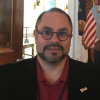Social Justice in the Science Classroom


K-12 public education reflects classism, sexism, and racism, and has led the way to striking and persistent inequities in our society. Education also holds the promise of a more equitable and perfect union. As educators, we are now teaching ideas of science practice once reserved for only the most empowered members of society. With this liberation of information, we have the responsibility and potential to co-construct a nation and world where the nurturing of all individuals leads to better collective outcomes.
Amidst global health pandemics and disparities, racial injustice, bias and violence against LGBTQ+ people, and cataclysmic environmental crises, the work of empowering our students to tackle issues of oppression is relevant, pertinent, and essential. Science education has the potential to be a force for improving our individual lives as well as our collective society.
The oppression of particular groups of people based on their histories or identities has been historically systematic, consistent, and pervasive. Therefore, a single lesson, or even a well-developed set of lessons, will not be enough to transform our culture and history of discrimination. Instead, we need a primer, or a “catalyst for academic achievement and social transformation,” as described by Morales-Doyle (2017, p.1034). We must shift our focus to a science-based humanistic and motivational approach to definitively improve our society.
Given our nation’s history and attempt to think of science education as removed from society, conversation and action around issues of justice may not be comfortable. However, creating teaching practices and communities that can work to dismantle systemic injustice requires being more curious about its origins than we are worried about our comfort.
Wilkerson (2020) provides us an explanation which enables us to address this discomfort:
None of us chose the circumstances of our birth. We had nothing to do with having been born into privilege or under stigma. We have everything to do with what we do with our God-given talents and how we treat others in our species from this day forward. We are not personally responsible for what people who look like us did centuries ago. But we are responsible for what good or ill we do to people alive with us today. We are, each of us, responsible for every decision we make that hurts or harms another human being. We are responsible for recognizing that what happened in previous generations at the hands of or to people who look like us set the stage for the world we now live in and that what has gone before us grants us advantages or burdens through no effort or fault of our own, gains or deficits that others who do not look like us often do not share. We are responsible for our own ignorance or, with time and openhearted enlightenment, our own wisdom. We are responsible for ourselves and our own deeds or misdeeds in our time and in our own space and will be judged accordingly by succeeding generations. (p. 387-388).
This month's theme and discussions intend to merge published literature which addresses social justice in the classroom with specific, documented ways in which teachers incorporate social justice ideas into their science classes (Upegui et al., 2021). On the panel,
- Sam Long will address strategies for incorporating current scientific knowledge on gender and sexual diversity into biology curricula;
- Salina Gray will explore instructional commitments that teachers can make to develop scientific knowledge and use it as a transformative lens;
- Kirstin Milks will share how the Learning for Justice standards can be applied to create powerful learning in the science classroom; and
- David Upegui will ground our discussion in the history of science and science education.
All four of us are currently science teachers working at the secondary level, and we additionally plan to share stories from our teaching. Our goal is to provide a wide range of ideas designed to culminate in engaging students in critical thinking about these issues and ultimately in helping those students construct a better society.
References:
Morales-Doyle, D. (2017). Justice-centered science pedagogy: A catalyst for academic achievement and social transformation. Science Education, 101(6), 1034–1060.
Wilkerson, I. (2020). Caste. The Origins of Our Discontents. New York: Random House.
Upegui, D., Coiro, J., Battle, S. et al. Integration of the Topic of Social Justice into High School Biology Curricula. Sci & Educ (2021). https://doi.org/10.1007/s11191-021-00287-y